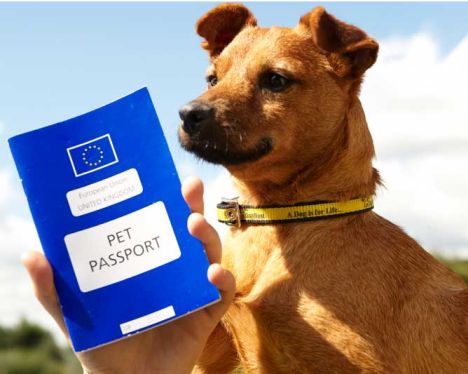Pet Travel between the UK and the EU after Brexit
Defra (the Department of Environment, Food & Rural Affairs) has published advice about pet travel between the UK and EU countries after Brexit (29 March 2019).
Key points from Defra’s advice are summarized here.
For the latest guidance, please visit the Defra website, whose information takes precedence over what’s published here.
How it works at the moment
Under the EU Pet Travel Scheme (PETS), dogs, cats and ferrets with valid EU pet passports can travel with their owners between EU countries. At least 21 days before the pet’s first trip, a vet must ensure the pet has a microchip, give it a rabies vaccination, and issue a pet passport.
Pet travel post Brexit
To make sure your pet can travel from the UK to the EU after Brexit, contact your vet at least four months before your travel date to get the latest advice.
The UK will become a third country when it leaves the EU. Under PETS, there are three categories of third country:
- unlisted
- Part 1 listed
- Part 2 listed
Requirements for pet travel to the EU will change depending on what category the UK becomes on exit day.
Unlisted
If the UK leaves the EU without a deal, it’s likely to be treated as an unlisted country under PETS.
That means a current EU pet passport issued in the UK won’t be valid for travel to the EU. You’ll need to allow four months between your pet’s rabies vaccination and the date of travel.
More information: https://www.gov.uk/guidance/pet-travel-to-europe-after-brexit#pet-travel-if-the-uk-is-an-unlisted-country
Part 1 or Part 2 listed
You’ll need to obtain documents from an official vet that replace the EU pet passport. The type of document you’ll need will depend on whether the UK becomes a Part 1 or Part 2 listed country.
- Part 1 listed. The UK will operate under the same PETS rules as EU member states but with a different type of pet passport — the UK pet passport — which you can use for travel to the EU as long as you keep your pet’s rabies vaccinations up to date.
- Part 2 listed. You’ll need to have your pet micro-chipped and vaccinated against rabies at least 21 days before travel. You’ll also need to visit an official vet no more than 10 days before the date of travel to get an animal health certificate confirming your pet is micro-chipped and vaccinated against rabies. Your pet will need a new animal health certificate for every trip to an EU country. You’ll also need to keep your pet’s rabies vaccinations up to date. You may also need to make sure that dogs have a tapeworm treatment.
More information: https://www.gov.uk/guidance/pet-travel-to-europe-after-brexit#if-the-uk-becomes-a-listed-third-country
If a deal is agreed and an implementation period is confirmed, you’ll be able to travel with your pet to the EU under the current PETS rules, using your pet’s current EU pet passport. If you don’t have a passport for your pet, you’ll need to get one from your vet before you travel.
More information: https://www.gov.uk/guidance/pet-travel-to-europe-after-brexit#pet-travel-during-an-implementation-period
UK nationals living in the EU
If you’re a UK national living in the EU and plan to travel with your pet after Brexit using a UK-issued pet passport, speak to your vet to find out about the effect of Brexit and ensure you comply with PETS.
If you have a pet passport issued by an EU member state, you’ll be able to use it to bring your pet to the UK.
More information: https://www.gov.uk/guidance/pet-travel-to-europe-after-brexit#uk-nationals-living-in-the-eu
Bringing Pets to Scotland
Right now there are no changes to the way in which pets can be brought to Scotland from the EU, or from countries outside of the EU.
If the UK leaves the EU without a deal, the rules for bringing pets to and from the UK will change.
Please contact your vet at least 4 months before traveling to make sure your pet is able to travel from the UK to the EU after Brexit.
Check for updated information on traveling to the UK with pets.

